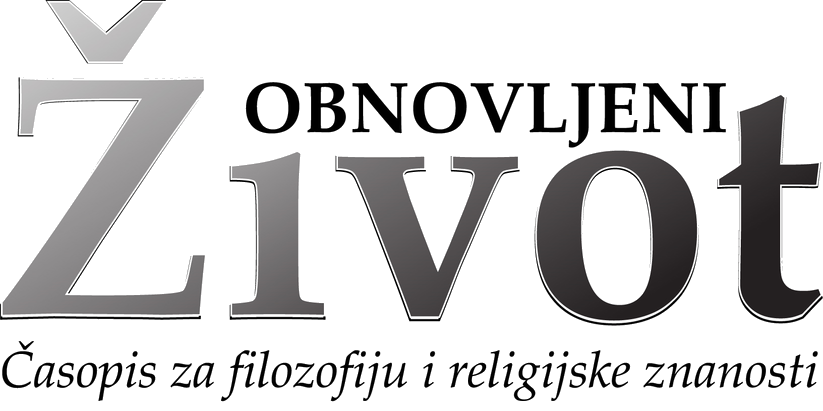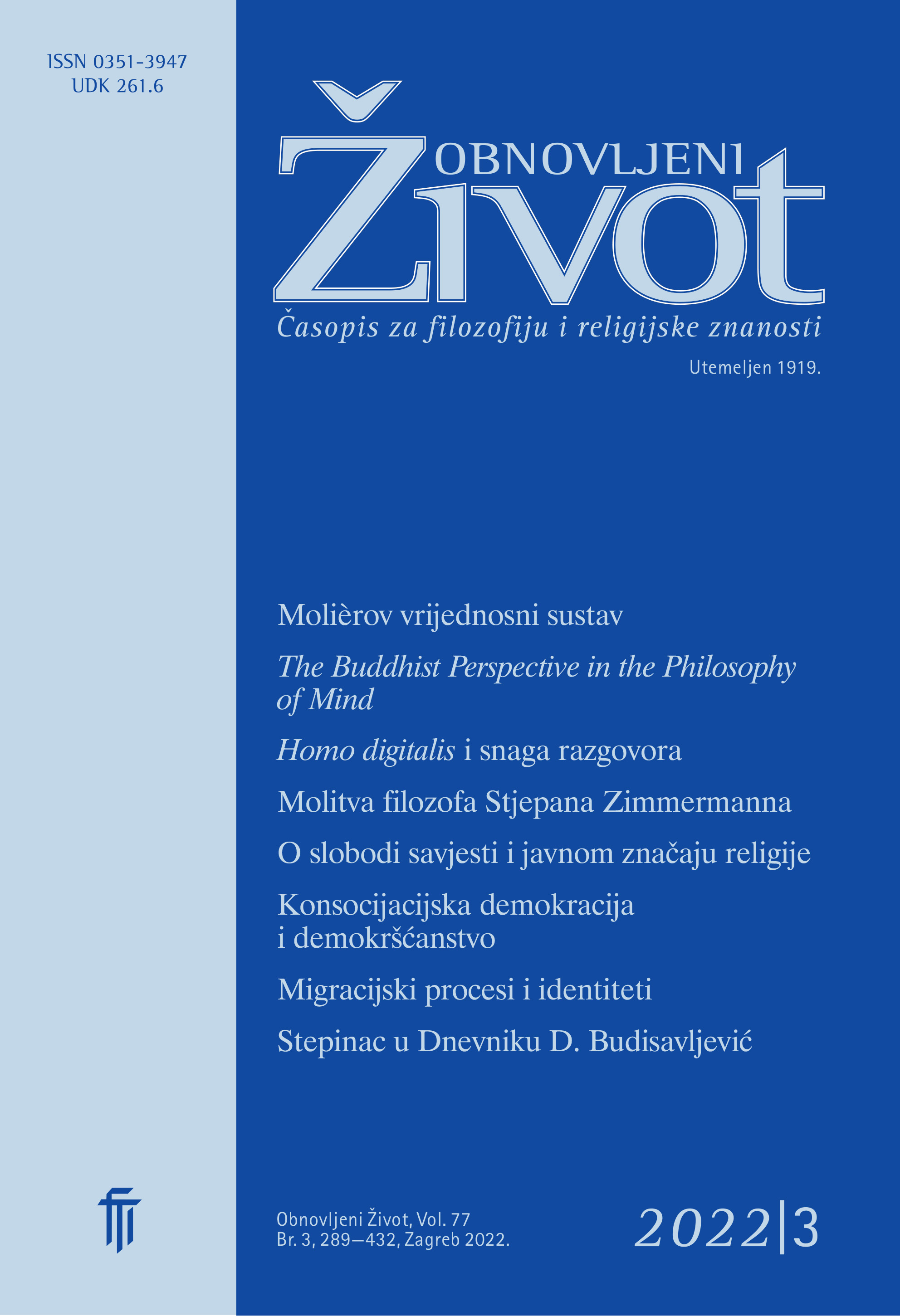„Homo digitalis” and the Power of Conversation in the Context of Byung–Chul Han’s Thought
Keywords:
“homo digitalis”, “digital swarms”, transparency, information, truth, love, conversationAbstract
The paper aims to show man’s position in the digital age which is characterized, among other things, by the formation of “digital swarms”, the tyranny of transparency and information overload, all of which lead to a crisis of truth, of thought and of love. A “digital swarm” is a group of isolated individuals who are unable to form a common “we” because they lack internal coherence. In contrast, they retain their personal identity and constantly work on perfecting their personal profile with the desire to be “someone” by manifesting themselves in public in their longing for attention. The world of “digital swarms” is marked by transparency whereby everything must be transparent, while the imperative of transparency is to distrust everything that cannot or does not want to be visible. This ideology leads to a crisis of desire, opinion and love, the causes of which should be sought in the radical social and technological changes of the past and in this century, as forewarned by many philosophers, sociologists and historians. These anthropological changes are related to changes in the economy, work and family and are caused by the spread of new media and digital technologies in a particular way. By analyzing the work of the German–Korean philosopher Byung–Chul Han and comparing his thoughts with other authors, we come to the conclusion that one of the ways to overcome the negative influences of digital technology can be found in the seemingly banal, but important and currently neglected, culture of conversation.
Downloads
Published
Issue
Section
License
Jednom prihvaćeni članak obvezuje autora da ga ne smije objaviti drugdje bez dozvole uredništva, a i tada samo uz bilješku da je objavljen prvi put u Obnovljenom životu. Uredništvo će obavijestiti autora o prihvaćanju ili neprihvaćanju članka za objavljivanje.
Članci objavljeni u časopisu se, uz prikladno navođenje izvora, smiju besplatno koristiti u obrazovne i druge nekomercijalne svrhe.


